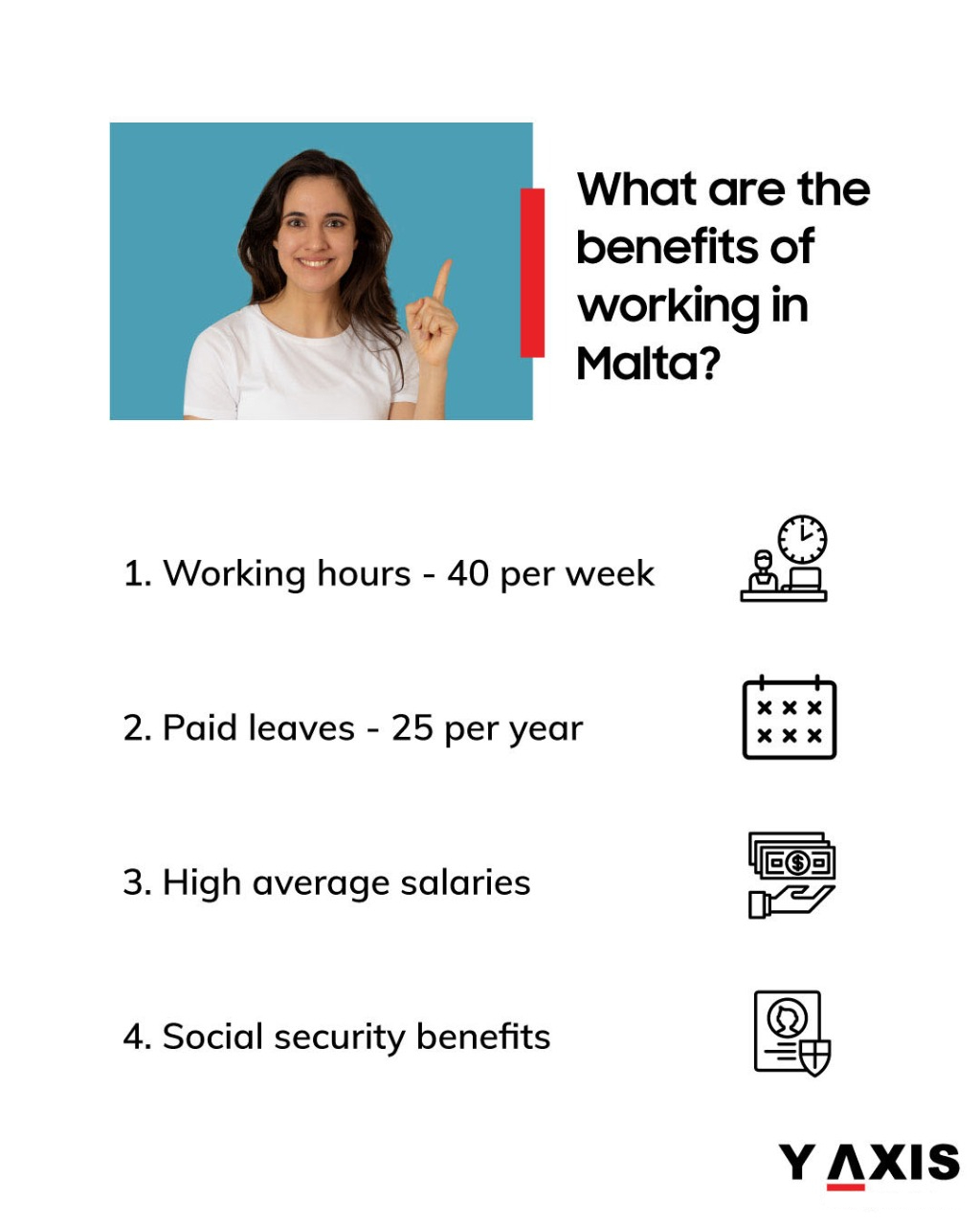Posted on April 22 2022
What are the benefits of working in Malta?
By , Editor
Updated September 20 2023
Malta, an island country in the European Union (EU), is an advanced nation according to the International Monetary Fund (IMF). It depends on foreign trade, tourism, and the manufacturing of electronics and textiles. Along with Maltese, English is the other official language of the country.
A lot of overseas workers live and reside in Malta. It is a transit point for people from Africa entering Europe. The country has both public and private healthcare systems.
Many migrants opt to work in Malta because of its moderate weather, easy-going lifestyle, increasing cultural diversity, and low cost of living. Malta was ranked as the 22nd happiest country in the world as per the World Happiness Report of 2018. Its quality of education and healthcare facilities is on par with many developed nations.
A survey of 2017 by InterNations of foreign workers belonging to 91 countries showed that 92% of them chose Malta because of its climate and the accommodating nature of the native Maltese.
Working conditions
If you live in Malta, you need to work up to 40 hours a week as the nation adheres to a five-day week of work. Moreover, all the employees of this nation are eligible for 25 days of vacation in a year.
Leaves
Maternity leave: Women working in this tiny nation have access to paid maternity leave of 14 weeks and can opt for unpaid leave for four additional weeks. This leave can be availed starting from two weeks prior to their due dates.
Parental Leave: Both parents of newborns are eligible for unpaid parental leave of four months both during pregnancies or at times of adoption. All parents of children aged up to eight are eligible for these leaves of four-month duration.
Average earnings
In Malta, the average monthly salary is €4,620. Meanwhile, salaries range from a low of €1,170 to €20,600 per month. Included in the average monthly earnings are expenses for housing and transport, besides other benefits.
Before moving to Malta, migrant workers must remember that tax rates levied upon them will be high for the initial 183 days. After they complete this period, their tax rates are dependent on their earnings. The maximum tax rate on individuals would be up to 35% of their yearly gross earnings.
Social security benefits Malta's Social Security Act provides its employees with a variety of benefits. They include, among others, injury and unemployment benefits, retirement and disability pensions, and medical assistance and child care benefits.
For availing of these benefits, both employers and employees need to pay up to 10% of their aggregate salaries as Social Security Contributions (SSC). These benefits will cover the payments for social security at times of illnesses, unemployment, injuries, old age, and taking care of children.
Residents of Malta can avail of public healthcare services as per the guidelines issued by its Ministry of Health.
Other benefits
Because the country hosts people of more than 170 nationalities, this nation indeed possesses a multicultural character. In addition, its quality of living is good, and so are its healthcare and educational facilities, making Malta a desirable career destination for people from across the world.
If you are currently a UAE resident and plan to work in Malta, contact Y-Axis, the World's No. 1 Immigration Consultant.
If you liked what you read, please check the following as well.
Tags:
Working advantages in Malta
Share
Y-Axis Services
Get it on your mobile
Get News alerts
Contact Y-Axis
